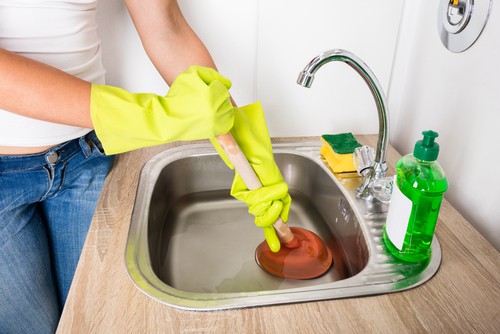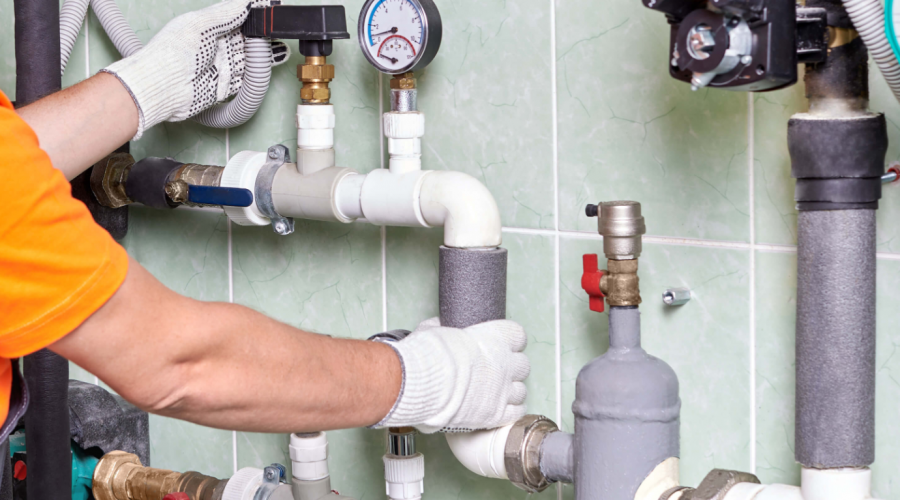Emergency Plumbing Fixes to Use Until Specialist Help Arrives
Emergency Plumbing Fixes to Use Until Specialist Help Arrives
Blog Article
This post underneath on the subject of What to Do During a Plumbing Emergency is indeed informative. You should check it out.

Pipes emergencies can strike at any moment, triggering stress and prospective damages to your home. Whether it's a burst pipe, a stopped up drain, or a leaking faucet, recognizing how to handle the circumstance till a specialist plumbing technician arrives can conserve you from additional difficulties. This article provides essential emergency situation plumbing tips to help you mitigate damage and reclaim control during a pipes dilemma.
Turn Off the Water System
The very first step in any kind of plumbing emergency is to turn off the water system. For localized issues, such as a leaking tap or toilet, switch off the shutoff near the fixture. When it comes to a significant leak or ruptured pipeline, locate your home's major water shut-off shutoff and transform it off immediately. Recognizing the location of these shutoffs beforehand can conserve useful time throughout an emergency.
Address Small Leakages with Short-term Repairs
Small leakages can swiftly become substantial troubles if left uncontrolled. Make use of these momentary fixes up until specialist assistance arrives:
While these repairs aren't permanent, they can aid reduce water loss and damages.
Unclog Drains Securely
A stopped up drainpipe can be a discouraging and messy problem. Here's exactly how to tackle it:
If these methods do not work, avoid making use of too much pressure, as it might worsen the blockage.
Handle Overflowing Toilets
An overruning commode can create immediate chaos. Here's what you ought to do:
Turn off Your Water Heater
In particular emergency situations, such as a burst pipe, it's important to shut down your water heater. This avoids getting too hot or damage to the unit when water stops flowing. Switch off the power supply to the water heater (electrical or gas) and let it cool to prevent potential dangers.
Temporarily Quit a Burst Pipe
A burst pipeline can result in significant water damages in mins. To reduce the issue:
Call a professional plumbing instantly to resolve the issue completely.
Deal With Frozen Pipes Thoroughly
In chillier climates, frozen pipelines are a common emergency. If you presume an icy pipe:
Prevent Additional Damages
Taking fast action to reduce damages can conserve you time and money over time. Below's just how:
. Have an Emergency Pipes Package
Prepare a standard plumbing emergency kit to deal with minor problems efficiently. Your package ought to include:
Having these devices available can make a substantial difference in your capability to manage emergencies.
Know When to Call a Professional.
While quick fixes can assist briefly, particular plumbing issues require instant expert interest. Call a plumbing technician if:.
Promptly contacting an expert makes sure the concern is dealt with properly and stops more complications.
Conclusion.
Plumbing emergencies can be frustrating, yet with the right expertise and devices, you can take care of the situation effectively until help arrives. By turning off the water supply, resolving little leakages, and utilizing short-term fixes, you can minimize damages and maintain your home safe. Bear in mind, these ideas are short-term options; constantly get in touch with an accredited plumbing technician to take care of the origin of the trouble. Prep work and fast thinking are your best allies in any pipes emergency situation.
8 Helpful Tips for Managing Plumbing Emergencies at Home
If your plumbing system hasn’t failed once, wait for it because almost everyone has a story to tell. Sometimes, it could be simple emergencies such as a leaking pipe, a blocked cistern, or even a big burst pipe. In situations like this, you need to have some handy tips to save you some money and from possible damages.
Take care of minor issues early.
Sometimes, you could have avoided an emergency by taking proactive measures while it was still early. Some major plumbing emergencies can be a result of an ignored minor issue. We recommend that you have items like plumbing tapes and other related items. A plumbing tape can allow you to manage minor leaks before the plumber arrives.
Cut off the water supply.
This tip is essential in almost any type of leakage problem. For problems like minor leakages in the toilet or kitchen, turn off the supply that takes water to the affected pipes. If the leakage is a major pipe, you must shut off the supply valve to the entire building. This will help you avoid flooding your home and neighbors if you share a flat.
Know your plumbing system
Folks typically move into a new apartment without understanding the water supply around the building. This can prove disastrous if a water emergency arises and the plumber is far away. The previous tip will prove useless if you don’t practice this one. More importantly, know where your water shut-off valve is located – you’ll need that knowledge to prevent potential home floods.
Have some common handy tools
There are lots of plumbing emergencies that you can handle without hiring a plumber. That’s why you must keep some tools available always. Some tools that you can use to fix simple plumbing emergencies easily include plumbing tapes, screwdrivers, thread seal tapes, plungers, pliers, tape measures, and rubber gloves.
Insulate your pipes from cold
You’ll save yourself from many plumbing expenses if you protect your water pipes from the cold. This is because of the harmful effects that cold weather can have on your pipes. During winter, your pipes can burst from being overly expected to freezing temperatures. So, make sure insulators are there to keep the pipes working correctly.
Avoid practices that will clog your toilet.
Many people indulge in practices that can damage the plumbing system of the entire building. One of these is when they use their toilet to dispose-off garbage. They flush all kinds of things, such as paper towels, bandages, hairs, female sanitary products, etc., down the toilet. This will block your toilet in the long run, incurring unnecessary expenditures. Dump such waste in the trash instead.
Check your dials regularly.
Sometimes, there could be leakages in your home without noticing them in time. So, constantly monitor your water meter dial. If the dial is reading when there is nobody using water, this is an indicator that there is leaking. Check for leaks immediately. Call a plumber as soon as possible if you can’t find any.
https://www.constructionplacements.com/8-helpful-tips-for-managing-plumbing-emergencies-at-home/

I ran across that blog posting about Expert Tips for Managing a Plumbing Emergency Until Help Arrives when doing a lookup on the internet. Enjoyed reading our entry? Please quickly share it. Let someone else check it out. We value reading our article about What to Do During a Plumbing Emergency.
View Report this page